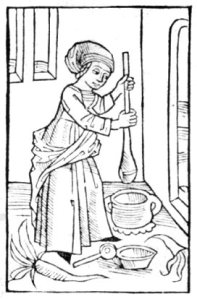 Within the course of several days I read three interesting articles regarding Israel that I thought merited sharing. One of them bothered me very much; I thought it deserved comment because it was rather unfortunate that an orthodox Jewish college student is taking up the mantra of left-wing anti-Semites; the other two, because they show Israel for what it is – a state built upon Jewish ethics and caring, and a land which has been waiting for Israel, it’s rightful owners, to return.
Within the course of several days I read three interesting articles regarding Israel that I thought merited sharing. One of them bothered me very much; I thought it deserved comment because it was rather unfortunate that an orthodox Jewish college student is taking up the mantra of left-wing anti-Semites; the other two, because they show Israel for what it is – a state built upon Jewish ethics and caring, and a land which has been waiting for Israel, it’s rightful owners, to return.
The “unfortunate” article appeared this past Sunday in the Jerusalem Post. It was an opinion piece by Atara Siegel explaining “Why Israel is losing support from Jewish students on US college campuses“. (I still can’t figure out the Jerusalem Post’s weird choice of accompanying picture of a female student at Barnard College’s graduation ceremony who looks like an animal about to pounce.) I expected this to either be enlightening or an article coming from a left-leaning anti-Israel student in one of the many liberal/secular colleges across the country. Atara Siegel is, surprisingly, a student at Yeshiva University who felt the need to explain to the world that although she loves Israel, studied here for a year, plans on working here in the summer, and making sure her education would be transferable to Israel she refuses to lobby Congress on behalf of Israel. Why? Because no matter how much good Israel does in the world it’s not enough since Israel is not a “perfect country” and the Israeli people are not perfect people. She writes:
… I wish I could ignore painful articles about price tag attacks and settlers shooting Palestinians, and simply write to American politicians and newspapers about Israel’s commitment to the security of its citizens, its medical and technological advances and aid to third world countries. But I can’t.
… Of course no country is perfect…
… But even one racist slur is a problem, even one unprovoked price tag attack damages Israel’s claim to have the moral high ground in its relations with Palestinians.
And when it is not just one racist slur, but many, not just marginal extremists involved in the melee, but Knesset ministers, it becomes harder, even for someone with a deep love for Israel, to advocate for Israel as the most democratic country and most stable American ally in the Middle East.
As someone who loves Israel deeply, this trend is extremely saddening. In addition to coming to visit, working in and studying in Israel, I want to be proud of Israel, too.
The next article in Mishpacha Magazine’s January 9, 2013 issue, titled “Open Hearts in the War Zone” presents the perfect juxtaposition to Atara Siegel’s piece. It shows the true nature of the Jewish State and the Jewish people – and makes me really proud of Israel and her wonderful people!

Taking cover as Iron Dome swings into action.
The author, Rachel Ginsberg, relates the experiences of a team of American Hatzaloh volunteers who were called to Israel to assist during the recent Operation Amud Anan – Pillar of Defense. They had previously trained in Israel so that they could come here and pitch-in during emergency situations. These fine people who came to help out their brothers, rather than castigate them, exclaim about how amazing Israel really is:
[Mordechai] Soroka [of Brooklyn] says one of the most surprising things he witnessed was the similar care administered to Arab patients, in spite of the hostilities on the ground. …’We provided ventilation and medication and high-level care for over an hour,’ [Eliyahu] Feldman [of Miami] reported. ‘It’s impossible to convey our mixed feelings, except to say what the well-spoken IDF commander answered when asked why we render care to Palestinians: ‘Because we’re not them.’
And the next day…
it happened again.
The third article, Israel’s miraculous climate change, presents a rather interesting (and seldom heard) long view of history by Joseph Farah, a pro-Israel Arab-American. It’s a great read and I hope you enjoy and appreciate it as much as I did:
JERUSALEM – Here I am in Israel, and what am I
thinking about?
Climate change.
Why climate change?
For 1,800 years it seemed unlikely that Israel would ever be reborn.
No nation in history had ever been regathered after such a lengthy period. Even the Hebrew language was lost in that time.
Meanwhile, the Promised Land became a barren wasteland – a desert no man could master.
Have you ever wondered why the Holy Land became a wasteland during the 1,800-year dispersion of the Jews that lasted until they returned in significant numbers beginning in the early 20th century?

1750 Homann Heirs Map of Israel – Palestine – Holy Land (12 Tribes) – Geographicus – Palestina-homannheirs-1750 (Photo credit: Wikipedia)
Have you ever wondered why Mark Twain was so disappointed at what he found in his travels through the area in the 19th century?
Have you ever wondered why, during that period of nearly two millennia, no other people successfully and permanently settled this land that is so much in dispute today?
It was all a fulfillment of prophecy. Little did Mark Twain know when he wrote about his trip to the Holy Land that he was fulfilling prophecy, but he was.
1 Kings 9:6-8 explains it all:
“But if ye shall at all turn from following me, ye or your children, and will not keep my commandments and my statutes which I have set before you, but go and serve other gods, and worship them: Then will I cut off Israel out of the land which I have given them; and this house, which I have hallowed for my name, will I cast out of my sight; and Israel shall be a proverb and a byword among all people: And at this house, which is high, every one that passeth by it shall be astonished, and shall hiss; and they shall say, Why hath the Lord done thus unto this land, and to this house?”
It wasn’t just the children of Israel who suffered as a result of their disobedience and apostasy. So did the land itself.
In his book, “Prophecies for the Era of Muslim Terror,” Rabbi Menachem Kohen points out the land suffered an unprecedented, severe and inexplicable (by anything other than supernatural explanations) drought that lasted from the first century until the 20th – a period of 1,800 years coinciding with the forced dispersion of the Jews.
Kohen sees this as a miraculous fulfillment of prophecy found in the book of Deuteronomy – especially chapter 28:23-24:
“And thy heaven that is over thy head shall be brass, and the earth that is under thee shall be iron.
“The LORD shall make the rain of thy land powder and dust: from heaven shall it come down upon thee, until thou be destroyed.”
The climate in Israel dramatically changed during this 1,800-period – way before Al Gore discovered “global warming.”
Before the Jews entered Canaan, it was described in the Bible as a land flowing with milk and honey. If you read what Israel’s climate and natural landscape was like from the time Joshua crossed the Jordan right up until the time of Jesus, it sounds like a heavily forested land. There were amazing crops raised by the people who inhabited the land when the Jews arrived.
Once I wondered what happened to Israel to turn it into the dusty, arid land it was when the Jews came back in the 20th century. Until I read that prophecy in Deuteronomy, brought to my attention by Rabbi Kohen, I had no clue.
For 1,800 years, it hardly ever rained in Israel. This was the barren land discovered by Mark Twain. So-called “Palestine” was a wasteland – nobody lived there. There was no indigenous Arab population to speak of. It only came after the Jews came back.
Beginning in A.D. 70 and lasting until the early 1900s – about 660,000 days – no rain.
I decided to check this out as best I could and examined the rainfall data for 150 years in Israel beginning in the early 1800s and leading up to the 1960s. What I found was astonishing – increasing rainfall almost every single year – with the heaviest rainfall coming in and around 1948 and 1967. Is this just a coincidence?
I’ll be quite honest with you: I don’t think so.
Nor do I think Israel can continue today to make bad stewardship decisions regarding the land bequeathed to the Jews by God without consequences – serious consequences.
And that’s exactly what Israel is doing today – yielding to global pressure to trade “land for peace.” It won’t work. In fact, the prophet Daniel (Daniel 11:39) warns that this will eventually happen in the last days – and bring about the final conflagration known as “Armageddon.”
That’s why I believe in climate change. But it’s not the imaginary kind caused by carbon dioxide. It’s caused by the Creator of carbon dioxide – and everything else.
He’s still got a plan for this land of Israel. And He is absolutely intolerant of anyone or anything that interferes with it.
And considering the tremendous amount of rainfall we had here in Israel just this past week, I would say that G-d is still on our side (even if Atara isn’t).
I would just like to remind Atara of two things: (1) even our patriarchs, matriarchs, and greatest leaders like Moshe Rabeinu (Moses) and Dovid Hamelech (King David) were not perfect and (2) of the sin of the spies’ (Numbers ch. 13-14) derogatory report about the land of Israel and the aftermath.
As for me, I’m a proud Jew, proud of the Jewish people in the Land of Israel, and honored to be living in our land.











